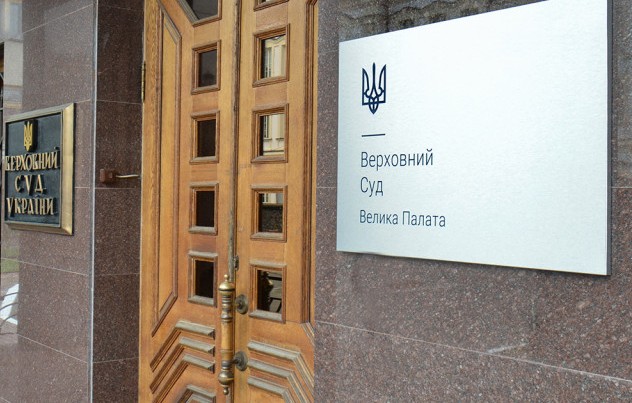 The Grand Chamber of the Supreme Court expressed its opinion on the jurisdiction of the cases on the appeal against the decision of the head of the department of the State Executive Service (DFS), adopted as a result of the review of the appeal against the decision of the state executive.
The Grand Chamber of the Supreme Court expressed its opinion on the jurisdiction of the cases on the appeal against the decision of the head of the department of the State Executive Service (DFS), adopted as a result of the review of the appeal against the decision of the state executive.
This is stated in the decision of the Court of Appeal of the Supreme Court in case No. 175/1571/15 (proceedings No. 14-51cs21), the press service of the court reports.
In case No. 175/1571/15, there was a legal problem of appealing the decision of the head of the internal combustion engine department, adopted during the review of the complaint against the decision of the state bailiff, regarding the referral of executive proceedings to another department of the internal combustion engine. In particular, the question arose whether such actions are the actions of a subject of authority, aimed at the performance of functions of control over the activities of subordinates, or a decision taken as a state executor regarding the execution of a court decision.
This case was initiated by a person who challenged the decision of the head of the internal combustion engine department. The court of first instance satisfied the person's complaint. The appellate court overturned the decision of the court of first instance and closed the proceedings in the case, citing the fact that the case is subject to consideration in an administrative court. The Civil Court of Cassation as part of the Supreme Court referred the case to the Grand Chamber of the Supreme Court.
In accordance with Part 1 of Art. 74 of the Law "On Enforcement Proceedings", the decision, actions or inaction of the executor and officials of the Internal Revenue Service regarding the execution of the court decision may be appealed by the parties, other participants and persons to the court that issued the enforcement document, in the manner prescribed by law.
The Supreme Court noted that this Law changes the jurisdiction of complaints about decisions, actions and inaction of the executor and officials of internal affairs bodies regarding the execution of a court decision, which is generally defined by procedural codes. Such a change of jurisdiction is connected with the implementation by the courts of their functions regarding the control over the execution of the court decisions made by them in the manner prescribed by the procedural codes.
The transfer of executive proceedings from one body of the Internal Revenue Service to another is a component of the process of execution of a court decision.
Such a decision affects the rights and obligations of the parties to the enforcement proceedings, and therefore the specified actions or decisions of the state executor or official of the Internal Revenue Service are subject to control by the court that issued the enforcement document. At the same time, the exercise of control functions by an official of the Internal Revenue Service does not affect the jurisdiction of the dispute. This approach ensures the concentration of control over the execution of a court decision in one judicial body.
Taking into account the above, the Grand Chamber of the Supreme Court came to the conclusion that complaints against the decisions, actions and/or inaction of an official of the Department of Internal Affairs, carried out in the order of control over the decisions, actions or inaction of the state executive regarding the execution of the court decision, are subject to consideration under the jurisdiction of the court that passed the relevant court decision.
The Grand Chamber of the Supreme Court annulled the decision of the appellate court, and sent the case to the appellate court for further consideration.




